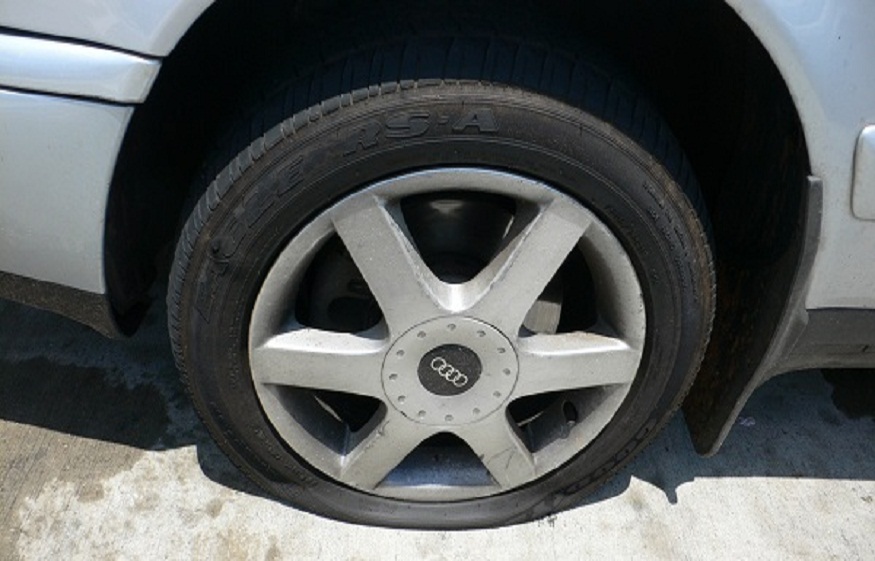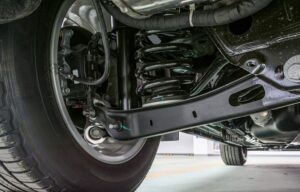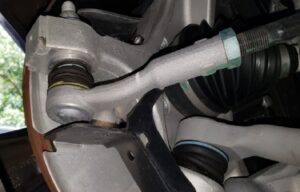Fuel Cards: Why They’re Safer Than Credit Cards for Your Business
Fuel management can be a headache for businesses, especially when it comes to controlling expenses and preventing fraud. Have you ever found yourself puzzled by unexpected charges on your credit card statement or worried about unauthorized purchases? You’re not alone. Many companies struggle with these issues, which is where fuel cards shine. Unlike traditional credit cards, fuel cards are specifically designed for purchasing fuel and come packed with security features that help businesses keep their costs in check. In this article, we’ll explore why fuel cards are a safer and more effective choice for managing your business’s fuel expenses.
Fuel cards offer enhanced security features such as customizable spending limits, geographic restrictions, and real-time monitoring of transactions, which reduce the risk of fraud. Unlike credit cards, which can be vulnerable to unauthorized use without specific controls, fuel cards provide businesses with greater protection against misuse, leading to safer and more efficient management of fuel expenses.
How Fuel Cards Enhance Security
Fuel cards offer more than just a convenient method for purchasing fuel; they come equipped with advanced security features designed to protect your assets from fraud. At the forefront of these innovations is smartchip technology. Unlike traditional credit cards that utilize magnetic stripes, which can be easily cloned, smartchips encrypt transaction data. This makes it nearly impossible for hackers to intercept and misuse the information during transactions. For businesses, this translates into lower risk and greater peace of mind knowing their financial transactions are well fortified.
With innovative encryption technology, fuel cards set a new standard in preventing fraudulent activities.
Yet, the strength of fuel cards doesn’t stop at encryption; they also provide customizable controls that allow business owners to monitor and restrict spending effectively.
Customizable controls are one of the most valuable features of fuel cards. Business owners have the flexibility to set specific purchasing limits per transaction, daily allowances, or even weekly restrictions. This means that if a card were lost or stolen, the potential damage would be contained within pre-set limits.
Additionally, businesses can establish rules regarding what types of purchases are allowed—such as restricting purchases solely to fuel or maintenance expenses—and when those purchases can occur. For instance, a company might choose to block transactions during non-working hours, eliminating unauthorized nighttime purchases. This level of control helps deter fraud and enhances overall management of company funds.
Also noteworthy is how these security measures extend to tracking driver behavior; with real-time transactional visibility, companies gain insights into spending patterns. Not only does this data help identify any unusual activity that could suggest fraud, but it also enables fleet managers to monitor performance efficiently. Regular reports can highlight inefficiencies and ensure that fuel dollars are being spent wisely.
As we explore further into this topic, it’s essential to understand how these tools specifically safeguard against various types of fraudulent activities without leaving your business vulnerable.
Fraud Protection Features
Fuel cards provide robust fraud protection mechanisms that enhance the security of your fleet operations. One standout feature is real-time monitoring, allowing managers to receive instant alerts whenever suspicious activities are detected.
Picture this: a driver attempts to purchase something other than fuel, perhaps snacks or accessories at a convenience store. The moment this unauthorized transaction occurs, an alert is sent directly to the manager, enabling swift action. It’s like having a watchful eye on your assets, ready to respond at a moment’s notice.
But real-time monitoring is just one part of the equation; technology has made it possible to add even more layers of security.
Geolocation Restrictions
Another critical feature is geolocation restrictions, leveraging GPS technology to ensure transactions are confined to designated areas. Imagine assigning drivers specific routes for filling up their vehicles. If a fuel card is misused in a location far removed from those authorized zones, say, hundreds of miles away, you’ll be alerted instantly Exxon. This not only helps prevent unauthorized usage but also aids in identifying potential internal issues before they spiral out of control.
Having these restrictions means knowing where resources are being utilized, so any anomalies can be addressed immediately rather than after significant losses occur.
Moreover, integrating both real-time monitoring and geolocation fosters an environment of increased accountability among employees. When team members recognize that every transaction is being watched and location-constrained, they are less likely to engage in fraudulent behavior. Coupling these features with thorough training programs for employees is equally important.
With these security measures in mind, adopting fuel cards seamlessly enhances protection while promoting responsible use and reinforcing integrity within fleet operations. By providing proactive safeguards against potential pitfalls, businesses can focus on driving growth instead of worrying about fraud—empowering everyone involved to contribute positively toward overall success.
As we explore further, it becomes clear that managing purchases effectively is crucial to maximizing the benefits of these protective features.
Managing Employee Purchases
A significant concern for fleet managers is ensuring that employees use company resources responsibly. With fuel cards, this challenge is met with effective solutions designed to promote accountability and transparency. One of the key features of these cards is their ability to limit purchases strictly to fuel and related expenses. By setting clear boundaries, businesses can prevent misuse for non-fuel items, safeguarding their assets and minimizing unnecessary expenditures.
Driver ID and Pin Code
Fuel cards often require drivers to enter a unique PIN or driver ID before authorizing a purchase. This simple measure significantly enhances security, ensuring that only authorized personnel can use the card. Imagine a scenario where you have a large team of drivers; each one has their own unique identifier, making tracking usage straightforward.
However, relying solely on PINs doesn’t encompass all potential risks; integrating additional safeguards is crucial.
Transaction Blocking and Alerts
Another method to curb misuse is transaction blocking. Fuel cards allow employers to define specific criteria for acceptable transactions—whether it be limiting purchases to specific locations or disallowing certain types of fuel altogether. For instance, if an employee attempts to buy premium fuel when only regular was authorized, the transaction will be denied instantly. Coupled with this functionality are automated alerts—real-time notifications that inform managers immediately when an out-of-policy transaction is attempted. This powerful combination not only curbs misuse but also deters it from happening in the first place.
It’s important that fleet managers regularly review these transaction reports. By doing so, they can quickly identify patterns or anomalies that may signify improper use or even a need for further employee training.
Managing employee purchases through effective use of fuel cards yields long-lasting benefits for any business operating a fleet. The flexibility and control provided by modern fuel card systems pave the way for more secure and responsible spending, allowing companies to optimize costs while ensuring that their resources are being utilized appropriately.
Understanding how these tools enhance financial oversight offers even greater advantages, particularly through improved tracking and analysis capabilities.
Tracking and Reporting Benefits
Fuel cards are not only a method of payment; they are a vital tool for gaining insights into your company’s spending behaviors. The real-time tracking feature of fuel cards provides comprehensive visibility into fuel expenses as they occur, allowing managers to act swiftly if they notice unusual spending patterns. Imagine this: you receive alerts right when a transaction occurs, enabling you to pinpoint discrepancies immediately. By capturing transaction details such as the amount spent, location, and time of purchase, businesses maintain a firm grip on their financial health.
Real-time tracking simplifies expense management by providing immediate feedback on each transaction.
Automatic categorization of costs helps in understanding where funds are allocated without manual entry.
Instant access to transaction history supports transparency and accountability within the team.
Yet, the benefits don’t stop at real-time oversight; it extends to how businesses can simplify their financial processes.
Simplified Expense Reports
One standout aspect of fuel card systems is their ability to automate and structure expense reports. As fuel cards categorize transactions automatically by driver or vehicle, managers gain an organized overview of expenses without having to sift through paper receipts or spreadsheets. This means no more late-night tallying or surprise budget overruns after an unmonitored trip!
With automated reports that track mileage and calculate fuel efficiency, managers glean insights that were previously buried under piles of paperwork. For instance, a fleet manager can easily generate a detailed report that breaks down fuel consumption and costs per driver, making clear which vehicles run efficiently and which may need attention.
Additionally, these streamlined processes facilitate crucial internal audits and provide essential information needed for tax reporting.
Not only does automation save time during day-to-day operations, but it also ensures that the information is accurate and timely when needed most. This level of detail provides clarity that ultimately aids in proactive decision-making, allowing businesses to identify trends over time and plan budgets more effectively.
As we transition from understanding the robust benefits of these tools, let’s explore how they contribute significantly to managing financial health and operational effectiveness.
Expense Control and Budgeting
Fuel cards offer businesses a powerful way to maintain tight control over their fuel budgets. What sets them apart from traditional credit cards is their unique capability to enforce spending limits tailored to each vehicle or driver. By establishing a clear monthly budget, businesses can effectively monitor fuel expenditures while preventing overspending.
For instance, imagine a company with a fleet of 20 trucks. By allocating $500 per truck each month, they create a realistic financial framework that keeps everyone accountable and ensures they stay within budgetary constraints Speedway / 7-11.
This system becomes even more advantageous when integrated with periodic spend analysis.
Budget Limits and Spend Analysis
With consistent tracking, companies can easily spot spending patterns and adjust their budgets as needed. If one truck consistently exceeds its fuel budget, the business can investigate potential issues—like inefficient driving habits or routes. The fuel card automatically enforces these limits, acting as a guardian against unexpected expenses that could skyrocket operational costs.
Furthermore, companies can set alerts that notify managers when nearing the allocated budget, making it easier to make informed decisions on-the-fly.
It’s not just about keeping within limits; it’s about using those boundaries to optimize operations further.
Comparing Fuel Cards to Credit Cards
Credit cards have been a go-to solution for managing business expenses for years, but they fall short when it comes to the specific needs of fuel management. While credit cards offer convenience and rewards, fuel cards provide additional protection and control. Designed specifically for fuel purchases, fuel cards allow employers to set parameters that restrict their use, ensuring funds are spent solely on fuel-related expenses. This significantly reduces fraud risk; unauthorized purchases that often plague standard credit card users simply don’t occur with fuel cards.
Tailored Controls
When we talk about cost savings, the statistics are telling. A study found that companies using fuel cards saved an average of 15% on their annual fuel costs due to effective expenditure management. The ability to control spending through predefined limits and monitoring tools enables businesses to manage budgets better and enforce policy compliance among employees. This tailored approach isn’t available with regular credit cards, where transactions are harder to track.
Furthermore, the built-in controls of fuel card systems allow businesses to efficiently track miles driven, gas consumption, and spending patterns. Imagine having all your fueling activities in one report—much easier than sifting through credit card statements! This systematic overview of data enables sounder business decisions regarding fleet management.














Post Comment
You must be logged in to post a comment.